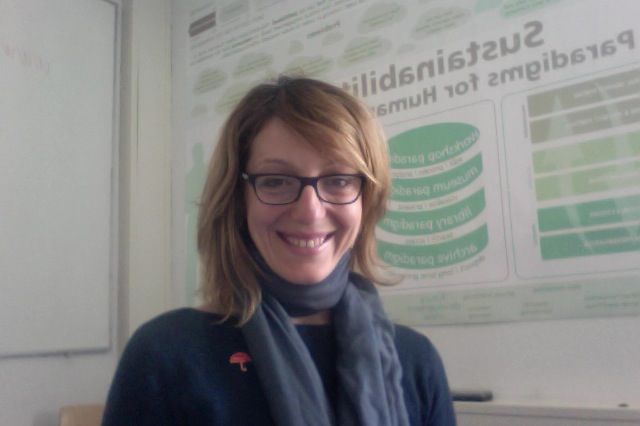Studying at the University of Verona
Here you can find information on the organisational aspects of the Programme, lecture timetables, learning activities and useful contact details for your time at the University, from enrolment to graduation.
Academic calendar
The academic calendar shows the deadlines and scheduled events that are relevant to students, teaching and technical-administrative staff of the University. Public holidays and University closures are also indicated. The academic year normally begins on 1 October each year and ends on 30 September of the following year.
Course calendar
The Academic Calendar sets out the degree programme lecture and exam timetables, as well as the relevant university closure dates..
| Period | From | To |
|---|---|---|
| Semester 1 | Oct 2, 2017 | Jan 20, 2018 |
| Semester 2 | Feb 26, 2018 | Jun 9, 2018 |
| Session | From | To |
|---|---|---|
| Winter session | Jan 22, 2018 | Feb 24, 2018 |
| Summer session | Jun 11, 2018 | Jul 28, 2018 |
| Autumn session | Aug 27, 2018 | Sep 22, 2018 |
| Session | From | To |
|---|---|---|
| LAUREE LINGUE - sessione autunnale a.a. 2016/2017 | Dec 18, 2017 | Dec 21, 2017 |
| LAUREE LINGUE - sessione invernale a.a. 2016/2017 | Mar 23, 2018 | Mar 29, 2018 |
| LAUREE LINGUE - sessione estiva | Jul 16, 2018 | Jul 21, 2018 |
| LAUREE LINGUE - sessione autunnale | Nov 12, 2018 | Nov 17, 2018 |
| LAUREE LINGUE - sessione invernale | Apr 12, 2019 | Apr 18, 2019 |
| Period | From | To |
|---|---|---|
| All Saints Day | Nov 1, 2017 | Nov 1, 2017 |
| Immaculate Conception | Dec 8, 2017 | Dec 8, 2017 |
| Christmas break | Dec 22, 2017 | Jan 7, 2018 |
| Easter break | Mar 30, 2018 | Apr 3, 2018 |
| Liberation Day | Apr 25, 2018 | Apr 25, 2018 |
| Labour Day | May 1, 2018 | May 1, 2018 |
| Patron Saint Day | May 21, 2018 | May 21, 2018 |
| Republic Day | Jun 2, 2018 | Jun 2, 2018 |
| Summer break | Aug 13, 2018 | Aug 18, 2018 |
Exam calendar
Exam dates and rounds are managed by the relevant Foreign Languages and Literatures Teaching and Student Services Unit.
To view all the exam sessions available, please use the Exam dashboard on ESSE3.
If you forgot your login details or have problems logging in, please contact the relevant IT HelpDesk, or check the login details recovery web page.
Academic staff
 alessandro.bigardi@univr.it
alessandro.bigardi@univr.it

Bradas Marija
 marija.bradas@univr.it
marija.bradas@univr.it
 paolamaria.caleffi@univr.it
paolamaria.caleffi@univr.it
 veronica.gobbato@univr.it
veronica.gobbato@univr.it
 tiziana.mancinelli@univr.it
tiziana.mancinelli@univr.it
 silvia.zollo@univr.it
silvia.zollo@univr.it
Study Plan
The Study Plan includes all modules, teaching and learning activities that each student will need to undertake during their time at the University.
Please select your Study Plan based on your enrollment year.
1° Year
| Modules | Credits | TAF | SSD |
|---|
1st foreign language2nd foreign language1st foreign literature2nd foreign literature2° Year activated in the A.Y. 2018/2019
| Modules | Credits | TAF | SSD |
|---|
1st foreign language2nd foreign language1st foreign literature2nd foreign literatureOne course to be chosen among the following3° Year activated in the A.Y. 2019/2020
| Modules | Credits | TAF | SSD |
|---|
1st foreign language2nd foreign languagePhilology of the first or second language| Modules | Credits | TAF | SSD |
|---|
1st foreign language2nd foreign language1st foreign literature2nd foreign literature| Modules | Credits | TAF | SSD |
|---|
1st foreign language2nd foreign language1st foreign literature2nd foreign literatureOne course to be chosen among the following| Modules | Credits | TAF | SSD |
|---|
1st foreign language2nd foreign languagePhilology of the first or second language| Modules | Credits | TAF | SSD |
|---|
Legend | Type of training activity (TTA)
TAF (Type of Educational Activity) All courses and activities are classified into different types of educational activities, indicated by a letter.
Introduction to Romance Philology (2019/2020)
Teaching code
4S003494
Teacher
Coordinator
Credits
6
Language
Italian
Scientific Disciplinary Sector (SSD)
L-FIL-LET/09 - ROMANCE PHILOLOGY AND LINGUISTICS
Period
II semestre (Lingue e letterature straniere) dal Feb 17, 2020 al May 30, 2020.
Learning outcomes
At the end of the course the student will be able to recognize the main phonetic and morphological phenomena of the main Romance languages and to describe their evolution starting from Latin; he will also be able to read, translate and comment the texts proposed in class. The student will also have the ability to illustrate, theoretically and practically, the ecdotic practice, useful for the constitution of the critical text of a medieval literary work.
Program
The course aims to provide students with the basics of Romance linguistics in its historical dimension starting from the common Latin origin, the so-called vulgar Latin, and insisting in particular on the phonetic, morphological and lexical aspects; this objective will be achieved both through theoretical lessons and through the reading and the linguistic analysis of some particularly representative texts in lange d'oïl, langue d 'oc, Castilian and Catalan. The course also aims to present the main features of textual criticism, both theoretically and through the observation of some concrete cases.
For the part concerning text's criticism, lecture notes will be provided by the teacher.
The knowledge, even basic, of Latin, although not strictly necessary, can be of help for a more immediate understanding of the topics covered during the course.
| Author | Title | Publishing house | Year | ISBN | Notes |
|---|---|---|---|---|---|
| Paolo Gresti | Antologia delle letterature romanze del Medioevo (Edizione 2) | Pàtron | 2011 | 978-88-555-3133-7 | |
| Paolo Gresti | Introduzione alla linguistica romanza | Pàtron | 2016 |
Examination Methods
Oral exame. The candidate's linguistic, literary and philological preparation will be evaluated both with general questions and through the reading and analysis of one or more texts among those read and commented during the course, or that are part of the bibliography; the candidate will be asked to read on a photocopy or volume provided by the examiner. General questions may precede or follow the reading and analysis of the texts. The vote will be the numerical synthesis not only of the indispensable knowledge of the contents, but also of the candidate's ability to organize his speech and to use the technical language required.
Type D and Type F activities
To discover all the teaching activities accredited by the foreign teaching college click here
Career prospects
Module/Programme news
News for students
There you will find information, resources and services useful during your time at the University (Student’s exam record, your study plan on ESSE3, Distance Learning courses, university email account, office forms, administrative procedures, etc.). You can log into MyUnivr with your GIA login details: only in this way will you be able to receive notification of all the notices from your teachers and your secretariat via email and soon also via the Univr app.
Student login and resources
Assegnazione tutore
Attività accreditate D/F
Calendario didattico dettagliato
Cambio lingua curriculare
Competenze informatiche
Competenze linguistiche (prima e seconda lingua)
Competenze linguistiche in triennale (terza lingua CFU F)
Compilazione del piano didattico
Corso di Lingua portoghese
Erasmus+ e altre esperienze all'estero
Linguistic training CLA
Graduation
List of theses and work experience proposals
| Stage | Research area |
|---|---|
| PROGETTO MAMBRINO Stage per bibliografia | Various topics |
Stage e tirocini
Nel piano didattico della laurea triennale in Lingue e culture per l’editoria (L11 ED) è previsto un tirocinio/stage obbligatorio (CFU 6).
Le attività di stage sono finalizzate a far acquisire allo studente una conoscenza diretta in settori di particolare interesse per l’inserimento nel mondo del lavoro e per l’acquisizione di abilità professionali specifiche.
Le attività di stage sono svolte sotto la diretta responsabilità di un singolo docente presso studi professionali, enti della pubblica amministrazione, aziende accreditate dall’Ateneo veronese.
I crediti maturati in seguito ad attività di stage saranno attribuiti secondo quanto disposto nel dettaglio dal “Regolamento d’Ateneo per il riconoscimento dei crediti maturati negli stage universitari” vigente.
- Tutte le informazioni in merito agli stage per futuri studenti sono disponibili alla pagina Stage e tirocini.
- Tutte le informazioni in merito agli stage per studenti iscritti sono pubblicate in MyUnivr - come fare per - stage e tirocini.
- Tutte le informazioni in merito agli stage per le aziende sono disponili alla pagina Stage e tirocini per azienze.
Ulteriori informazioni al seguente link https://www.univr.it/it/i-nostri-servizi/gestione-carriere-studenti-lingue-e-letterature-straniere/stage-e-tirocini-lingue-e-letterature-straniere

 +39 045802 8409
+39 045802 8409






























